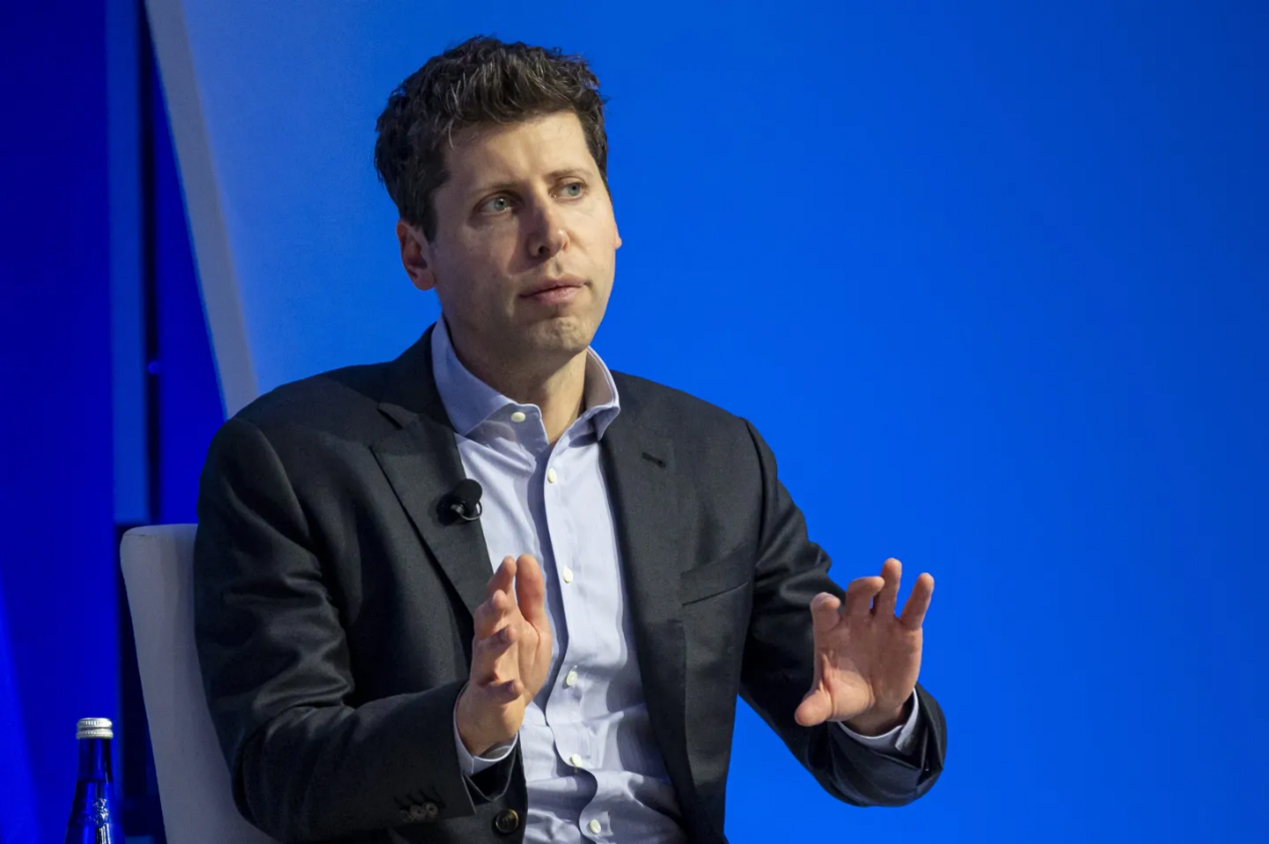
杰弗里·辛顿本身就是一个行走的悖论——他是某类杰出科学家的典型代表。
周二,辛顿的声誉更上一层楼。他和美国科学家约翰·霍普菲尔德因为发现了实现现代人工智能突破的神经网络和计算机路径,共同获得了诺贝尔物理学奖。然而,最近几年,辛顿却陷入了矛盾的境地:这个让他赢得赞誉的发现,现在却成为无尽担忧的来源。
在过去的一年里,被誉为“人工智能教父”的辛顿,一再强烈警告他的发现所带来的技术可能导致的危险。辛顿既像是神话里的普罗米修斯,又像是先知卡珊德拉,他与许多传奇科学家一样,一方面是人类对功成名就的愿望,另一方面是反思行动后果的人文冲动。J·罗伯特·奥本海默和艾伯特·爱因斯坦都曾因为他们的原子研究所造成的毁灭而陷入痛苦。炸药的发明者阿尔弗雷德·诺贝尔对他的遗产可能造成的影响深感不安,因此他创立了一个基金会,用于颁发以他的名字命名的奖项,也就是辛顿获得的诺贝尔奖。
辛顿在2023年接受《60分钟》(60 Minutes)采访时表示:“我看不到一条保证安全的路径。我们正在进入一个充满不确定性的时期。我们要面对的是以前从未处理过的事情。”
辛顿认为,人类对人工智能知之甚少,这非常可怕,而且机器可能比人类更聪明,他的担忧大多源于此。他在接受NPR采访时表示:“机器可能变得比人类更聪明,并且可能决定接管这个世界,现在我们需要担心的是如何阻止这种情况发生。”
辛顿原籍英格兰,他的大部分职业生涯都在美国和加拿大度过。在多伦多大学(University of Toronto),他取得了一项重大突破,后来这成为当代人工智能许多应用的智能基础。2012年,辛顿和两名研究生(其中之一是OpenAI前首席科学家伊利亚·苏特斯威夫)建立了一个可从图片中识别出基本物体的神经网络。最终,谷歌(Google)以4,400万美元,收购了辛顿基于这项技术创建的一家公司。之后,辛顿为谷歌工作了10年,2023年退休后,他摆脱了任何公司约束,从而可以公开警告人工智能的风险。(辛顿并未回应置评请求。)
辛顿对人工智能的进步速度感到担忧。他在去年接受《纽约时报》采访时表示:“看看五年前的情况,再看看现在。对比一下前后差异,并请对外宣传。这太可怕了。”
辛顿表示,人工智能模型有可能相互传播只有一个模型可能已经学会的新信息,而且效率远高于人类,这令他深感担忧。
他在2023年表示:“只要有一个[模型]学到了任何信息,其他模型就会知道。这是人类所做不到的。如果我学到许多关于量子力学的知识,我希望让你也学会这些知识,我要经过一个漫长痛苦的过程才能让你理解它。”
辛顿的一些观点颇具争议,例如他认为人工智能实际上可以“理解”自己的言行。如果这是真的,这可能会颠覆人们对于人工智能的许多传统认识。目前人们的共识是,人工智能系统不一定知道它们为什么会做它们正在做的事情,而是经过编程,根据给出的提示输出特定的结果。
辛顿在一份公开声明中谨慎地表示,人工智能并不像人类那样具有自主意识。相反,人工智能系统学习、改进和最终生成特定结果的机制,意味着它们必须理解正在学习的内容。据《连线》杂志报道,辛顿之所以发出警告,是因为他曾要求一个聊天机器人准确地解释为什么他杜撰的一个笑话是好笑的。这个聊天机器人能够理解幽默的微妙之处,然后用自己的语言清楚地表达出来,这让辛顿深受启发。
随着人类朝着几乎无人理解的终点线冲刺,辛顿担心,人类可能无法掌控人工智能。他设想了一种情况,即人工智能系统能够编写代码修改自己的学习协议,并躲过人类的监控。就像莎士比亚戏剧里跌宕起伏的情节一样,它们将从人类自身的弱点中,学会如何这样做。
辛顿在2023年10月接受《60分钟》采访时表示:“它们将能够操纵人类。它们将变得非常善于说服人类,因为它们将从人类写的所有小说、马基雅维利的所有书籍和各种政治阴谋中学习,它们将变得无所不通。”(财富中文网)
译者:刘进龙
审校:汪皓
杰弗里·辛顿本身就是一个行走的悖论——他是某类杰出科学家的典型代表。
周二,辛顿的声誉更上一层楼。他和美国科学家约翰·霍普菲尔德因为发现了实现现代人工智能突破的神经网络和计算机路径,共同获得了诺贝尔物理学奖。然而,最近几年,辛顿却陷入了矛盾的境地:这个让他赢得赞誉的发现,现在却成为无尽担忧的来源。
在过去的一年里,被誉为“人工智能教父”的辛顿,一再强烈警告他的发现所带来的技术可能导致的危险。辛顿既像是神话里的普罗米修斯,又像是先知卡珊德拉,他与许多传奇科学家一样,一方面是人类对功成名就的愿望,另一方面是反思行动后果的人文冲动。J·罗伯特·奥本海默和艾伯特·爱因斯坦都曾因为他们的原子研究所造成的毁灭而陷入痛苦。炸药的发明者阿尔弗雷德·诺贝尔对他的遗产可能造成的影响深感不安,因此他创立了一个基金会,用于颁发以他的名字命名的奖项,也就是辛顿获得的诺贝尔奖。
辛顿在2023年接受《60分钟》(60 Minutes)采访时表示:“我看不到一条保证安全的路径。我们正在进入一个充满不确定性的时期。我们要面对的是以前从未处理过的事情。”
辛顿认为,人类对人工智能知之甚少,这非常可怕,而且机器可能比人类更聪明,他的担忧大多源于此。他在接受NPR采访时表示:“机器可能变得比人类更聪明,并且可能决定接管这个世界,现在我们需要担心的是如何阻止这种情况发生。”
辛顿原籍英格兰,他的大部分职业生涯都在美国和加拿大度过。在多伦多大学(University of Toronto),他取得了一项重大突破,后来这成为当代人工智能许多应用的智能基础。2012年,辛顿和两名研究生(其中之一是OpenAI前首席科学家伊利亚·苏特斯威夫)建立了一个可从图片中识别出基本物体的神经网络。最终,谷歌(Google)以4,400万美元,收购了辛顿基于这项技术创建的一家公司。之后,辛顿为谷歌工作了10年,2023年退休后,他摆脱了任何公司约束,从而可以公开警告人工智能的风险。(辛顿并未回应置评请求。)
辛顿对人工智能的进步速度感到担忧。他在去年接受《纽约时报》采访时表示:“看看五年前的情况,再看看现在。对比一下前后差异,并请对外宣传。这太可怕了。”
辛顿表示,人工智能模型有可能相互传播只有一个模型可能已经学会的新信息,而且效率远高于人类,这令他深感担忧。
他在2023年表示:“只要有一个[模型]学到了任何信息,其他模型就会知道。这是人类所做不到的。如果我学到许多关于量子力学的知识,我希望让你也学会这些知识,我要经过一个漫长痛苦的过程才能让你理解它。”
辛顿的一些观点颇具争议,例如他认为人工智能实际上可以“理解”自己的言行。如果这是真的,这可能会颠覆人们对于人工智能的许多传统认识。目前人们的共识是,人工智能系统不一定知道它们为什么会做它们正在做的事情,而是经过编程,根据给出的提示输出特定的结果。
辛顿在一份公开声明中谨慎地表示,人工智能并不像人类那样具有自主意识。相反,人工智能系统学习、改进和最终生成特定结果的机制,意味着它们必须理解正在学习的内容。据《连线》杂志报道,辛顿之所以发出警告,是因为他曾要求一个聊天机器人准确地解释为什么他杜撰的一个笑话是好笑的。这个聊天机器人能够理解幽默的微妙之处,然后用自己的语言清楚地表达出来,这让辛顿深受启发。
随着人类朝着几乎无人理解的终点线冲刺,辛顿担心,人类可能无法掌控人工智能。他设想了一种情况,即人工智能系统能够编写代码修改自己的学习协议,并躲过人类的监控。就像莎士比亚戏剧里跌宕起伏的情节一样,它们将从人类自身的弱点中,学会如何这样做。
辛顿在2023年10月接受《60分钟》采访时表示:“它们将能够操纵人类。它们将变得非常善于说服人类,因为它们将从人类写的所有小说、马基雅维利的所有书籍和各种政治阴谋中学习,它们将变得无所不通。”(财富中文网)
译者:刘进龙
审校:汪皓
Geoffrey Hinton is a walking paradox—an archetype of a certain kind of brilliant scientist.
Hinton’s renown was solidified on Tuesday when he won the Nobel Prize in physics, alongside the American scientist John Hopfield, for discovering neural networks and the computer pathways that led to modern-day breakthroughs in AI. However, in recent years he has come to be defined by a contradiction: The discovery that led to his acclaim is now a source of ceaseless concern.
Over the past year, Hinton, dubbed “the godfather of AI,” has repeatedly and emphatically warned about the dangers the technology unleashed by his discovery could cause. In his role as both Prometheus and Cassandra, Hinton, like many scientists of legend, was caught between the human desire to achieve and the humanist impulse to reflect on the consequences of one’s actions. J. Robert Oppenheimer and Albert Einstein grappled torturously with the destruction their atomic research caused. Alfred Nobel, the inventor of dynamite, became so distraught over what his legacy might be that he started a foundation to award the eponymous prize that Hinton won.
“I can’t see a path that guarantees safety,” Hinton told 60 Minutes in 2023. “We’re entering a period of great uncertainty, where we’re dealing with things we’ve never dealt with before.”
Much of Hinton’s worry stems from the belief that humanity knows frighteningly little about artificial intelligence—and that machines may outsmart humans. “These things could get more intelligent than us and could decide to take over, and we need to worry now about how we prevent that happening,” he said in an interview with NPR.
Originally from England, Hinton spent much of his professional life in the U.S. and Canada. It was at the University of Toronto where he reached a major breakthrough that would become the intellectual foundation for many contemporary uses of AI. In 2012, Hinton and two grad students (one of whom was Ilya Sutskever, the former chief scientist at OpenAI) built a neural network that could identify basic objects in pictures. Google eventually bought a company Hinton had started based on the tech for $44 million. Hinton then worked at Google for 10 years before retiring in 2023 to free himself from any corporate constraints that may have limited his ability to warn the public about AI. (Hinton did not respond to a request for comment.)
Hinton feared the rate of progress in AI as much as anything else. “Look at how it was five years ago and how it is now,” Hinton told the New York Times last year. “Take the difference and propagate it forwards. That’s scary.”
Concerning him was the potential for AI models to teach each other new information that only one model may have learned, which could be done with considerably greater efficiency than humans, according to Hinton.
“Whenever one [model] learns anything, all the others know it,” Hinton said in 2023. “People can’t do that. If I learn a whole lot of stuff about quantum mechanics, and I want you to know all that stuff about quantum mechanics, it’s a long, painful process of getting you to understand it.”
Among Hinton’s more controversial views is that AI can, in fact, “understand” the things it is doing and saying. If true, this fact could shatter much of the conventional wisdom about AI. The consensus is that AI systems don’t necessarily know why they’re doing what they’re doing, but rather are programmed to produce certain outputs based on prompts they are given.
Hinton is careful to say in public statements that AI is not self-aware, as humans are. Rather, the mechanisms by which AI systems learn, improve, and ultimately produce certain outputs mean they must comprehend what they’re learning. The impetus for Hinton sounding the alarm was when he asked a chatbot to accurately explain why a joke he had made up was funny, according to Wired. That a chatbot could understand the subtleties of humor and then convey them clearly in its own words was revelatory in Hinton’s view.
As humanity races toward a finish line that virtually none understand, Hinton fears that control of AI may slip through humanity’s fingers. He envisions a scenario in which AI systems will write code to alter their own learning protocols and hide from humans. In a Shakespearean twist, they’ll have learned how to do so precisely from our own flaws.
“They will be able to manipulate people,” Hinton told 60 Minutes in October 2023. “They will be very good at convincing people, because they’ll have learned from all the novels that were ever written, all the books by Machiavelli, all the political connivances, they’ll know all that stuff.”






